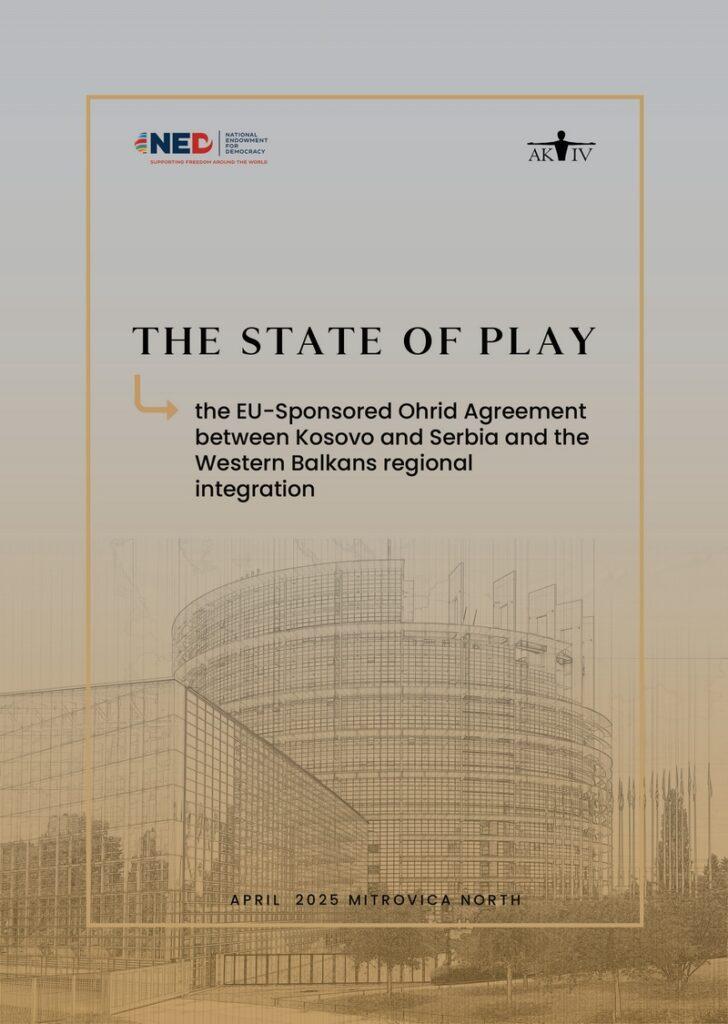In its latest report “State of Play: The EU-Sponsored Ohrid Agreement between Kosovo and Serbia and the Western Balkans Regional Integration”, NGO Aktiv analyzes the deadlocks, risks, and broader political consequences of the failed implementation of the 2023 Ohrid Agreement, which was facilitated by the European Union and supported by the United States.
The agreement was conceived as a key step toward the normalization of relations between Kosovo and Serbia, in the context of accelerated geopolitical shifts and EU efforts to ensure the stability of the Western Balkans. Its main provisions include:
- mutual recognition of documents and symbols;
- non-obstruction of membership in international organizations;
- resolution of disputes exclusively by peaceful means;
- formation of the Association of Serb-majority Municipalities (ASM);
- protection of the Serbian Orthodox Church and cultural heritage;
- establishment of a joint implementation committee under EU auspices;
- organization of a donor conference for development projects.
However, as the report states, none of these obligations have been implemented. The process has been further undermined by unilateral actions of the government in Pristina in northern municipalities, including the presence of special police forces, the ban on the use of the dinar, and failed local elections, all of which have led to an institutional vacuum, boycott by the Serbian community, and rising political tensions. On the other hand, Belgrade shows little readiness to constructively implement its commitments, further compromising the process.
One particularly contentious issue remains the formation of the ASM. Although its status was confirmed in both the Brussels and Ohrid agreements, the Government of Kosovo continues to refuse to submit the EU-drafted statute to the Constitutional Court, effectively stalling the process.
The report also points out that the regional integration process has made no progress. Key commitments from the Common Regional Market (CRM) agenda, such as the free movement of people, goods, capital, and services, have not been implemented. The European Commission has repeatedly criticized Kosovo for obstructing CEFTA mechanisms, violating its commitments, and disrupting trade relations with Serbia.
In conclusion, NGO Aktiv calls for:
- a clear and unified EU stance on the goals of normalization;
- consistent implementation of signed agreements;
- the establishment of conditions for the return of legitimate institutions in northern Kosovo;
- the development of a concrete plan to integrate the Western Balkans into the EU single market by 2030.
Without a strategic shift in approach, the Ohrid Agreement risks becoming yet another missed opportunity in a region increasingly losing trust in the European perspective and in its own ability to function sustainably.
The report was produced with the support of the National Endowment for Democracy (NED).
The NGO Aktiv Report: The Ohrid Agreement and Regional Integration

